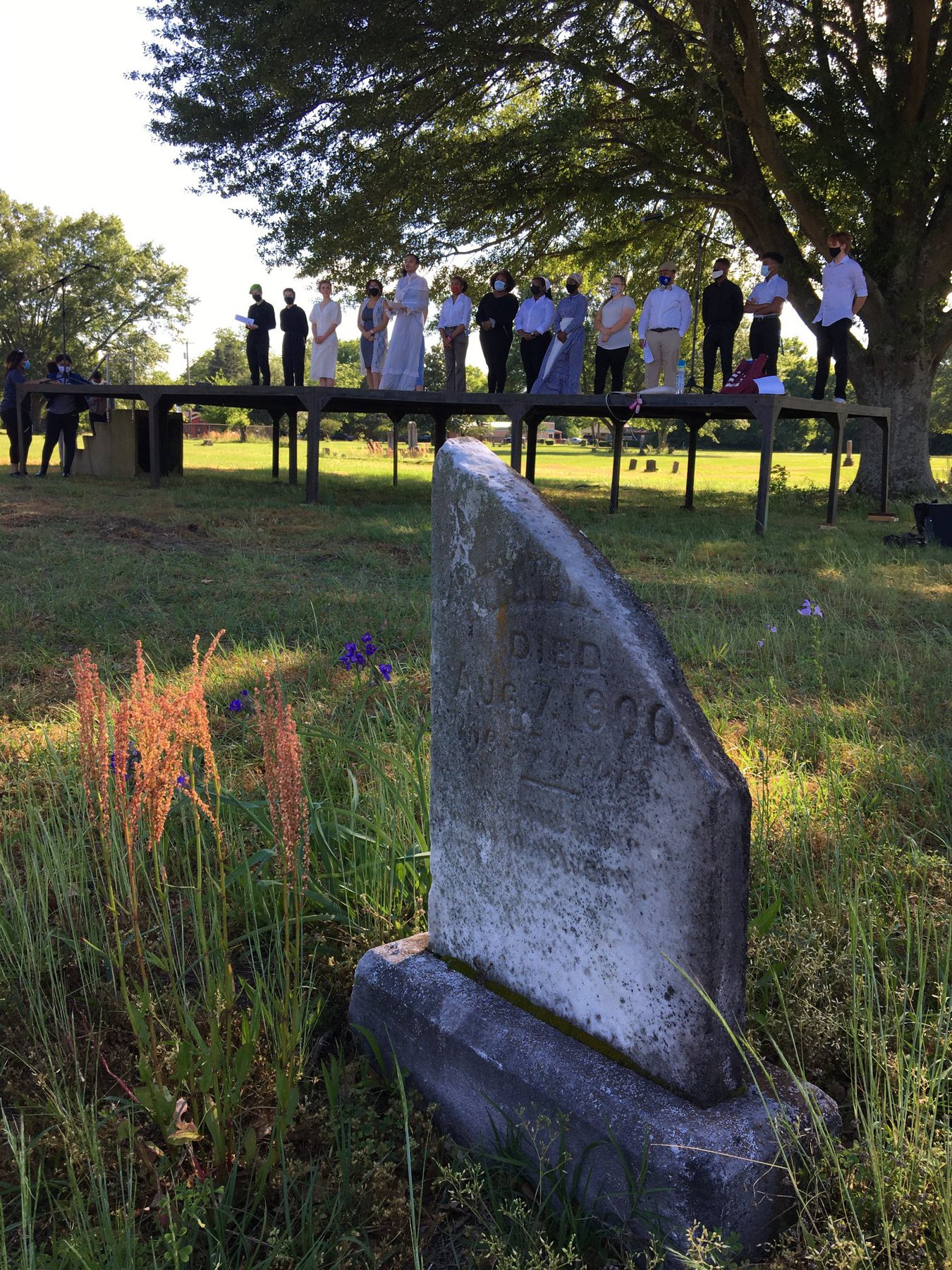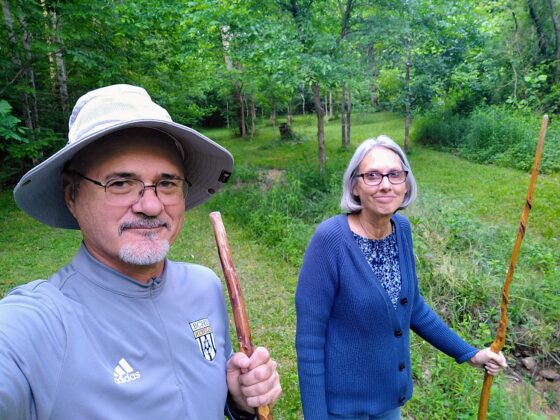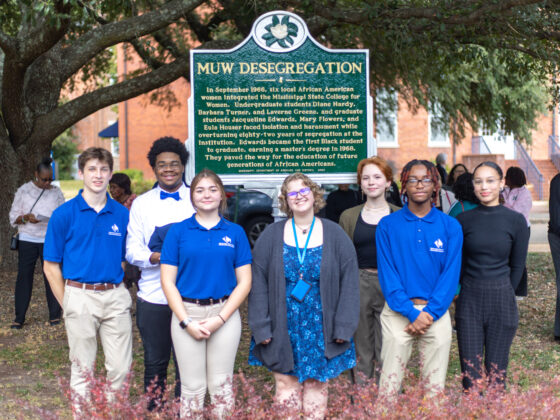In Columbus, Mississippi, May 8 holds a historical significance. Why?
“The Emancipation Proclamation officially took effect on January 1, 1863. But in this part of Mississippi, the 8th of May has been celebrated in the black community as Emancipation Day. It was on May 8, 1865, that Union troops arrived from across the state line in Alabama and effectively put an end to slavery.”
That’s from James Fallows’ first piece on Mississippi School for Mathematics and Science (MSMS), in Columbus, Mississippi featuring by The Atlantic in 2014 here. Along with shining a light on what makes MSMS a remarkable public institution, that piece highlight’s the school’s annual Eight of May Emancipation Celebration.
MSMS history teacher Chuck Yarborough organizes the event, and you can read Yarborough in his own words here to find out more about his vision for the role of education in exploring these historical conversations in the present.
Thanks to Thomas Easterling, an English teacher at MSMS, who invited James and Deborah to visit Columbus and tour MSMS, the school, along Yarborough and his students, were later featured in the “Our Towns” book and most recently in the “Our Towns” HBO documentary. As Deborah Fallows noted in the interview with her and James on the Today Show, the Eighth of May Emancipation Celebration event has grown from drawing a crowd of a dozen to throngs of hundreds.
This year, those interested in attending wouldn’t have to drive to Columbus, Mississippi. They could tune in live to watch via Zoom. And now, they can see the recorded performance on YouTube.
And with new stories and historical lessons that the students shared with the community, even if you’ve seen this before, it’s worth tuning in. And, members of the Columbus High School Choir (directed by Dr. Doug Browning) and the Mississippi State University Department of Music Jembe Den percussion ensemble (directed by Dr. Robert Damm) kicked off the performance.
You can watch it here:
In the research/performance project, here’s a look at who you’ll meet and learn about and from:
2021 Research subjects, MSMS student groups, and performance bios
William I. Mitchell (and family) – Educator & civic leader
Student researchers: Brayden Bailey; Megan Curry; Madison Meeks
Dramatic performer: Brayden Bailey (Sr. from Indianola, MS) portrays a Union student
Born enslaved in Columbus, Mississippi, William Isaac Mitchell was one of the first attendees at Alcorn A & M College in Lorman, Mississippi, under the presidency of Hiram Revels who would later become the first African American U.S. Senator. Mitchell was named the first black principal at Union Academy in 1877, and for nearly 40 years he would lead educational efforts in the black community, in the face of racial discrimination and unequal opportunity for his teachers and students. He was also a leader in local fraternal organizations and a local business leader who help found the Penny Savings Bank, a wholly black-owned bank.
The performer opens by referring to Mitchell, while gesturing toward his grave: “…that man over there is my best hope for a future…”
Allen Rabb (and family) – businessman
Student researchers: David Gipson; Madison Huddleston; Hailey Manning
Dramatic Performer: John May (Jr. from Jackson, MS) portrays Allen Rabb
Born shortly after Emancipation, Rabb’s father – Jack Rabb – had been a free man of color as a result of purchasing his own freedom. Allen Rabb and his siblings attended Union Academy, and Allen opened a meat market in the 100 block of what is now North 5th Street during the late 19th century. Rabb sold the meat market downtown in 1904 and reopened “Rabb’s Meat Market” a few years later at the corner of 5th Ave. South and 9th St. South, near the college campus. The Rabb family was the defendant in an important property case, ultimately decided by the Mississippi Supreme Court.
The performance explores the tenuous property rights of African Americans in 19th century Mississippi and suggests challenges black families faced accumulating wealth.
Henry Edwin Baker, Jr. (and family) – US Naval Academy appointee & US Patent examiner
Student researcher: Mackenzie Knighten; Kareena Patel; Kayla Riley
Dramatic performer: Mackenzie Knighten (Jr. from Ruleville, MS) portrays Violetta Clark Baker, Henry’s wife
Born in 1857 to Henry Edwin Baker, Sr., and his wife Phoebe, Henry Edwin Baker, Jr., attended Union Academy in its earliest years following the Civil War. In 1874, Baker was appointed to the U.S. Naval Academy as just the 3rd African American midshipman in the nation’s history. At the Naval Academy, Baker endured harsh racial discrimination and violence and was eventually dismissed. After leaving Annapolis, Baker graduated 1st in his class from Howard University’s school of Law and began a career in the U.S. Patent Office, eventually rising to be the highest ranking African American there. As part of an effort to refute white supremacist claims of black inferiority in the late-19th and early-20th centuries, Baker documented patents attained by black Americans during the 19th century. With the support of W.E.B. DuBois, Baker published his findings in two books which formed the basis of national and international exhibits on black excellence in America.
The performer also shares the accomplishments of Baker’s wife, a librarian of Congress, and presents Baker as “one who did for those what they couldn’t do for themselves.”
Richard Denthrift Littlejohn (and family) – publisher
Student researchers: Faith Bradford; Adriana Mays; Clare Seo
Dramatic performer: Jordan Isbell (Jr. from Okolona, MS) portrays Littlejohn
Born in North Carolina, the son of a slave-holding father, Littlejohn attended Oberlin College and became a successful newspaper publisher in Columbus during the last 2 decades of the 19th century. He was a Grand Mason, and the property he owned in the heart of downtown Columbus hosted important social, fraternal, and business organizations in the local African American community. In 1893, he and two other black Mississippians unsuccessfully attempted to integrate the all-white national convention of Free Masons.
Sen. Robert Gleed (and family) – businessman & political leader
Student Researchers: Kelsei Harris; Mackenzie Hughes; Abbie Strain
Dramatic Performer: Niyah Lockett (Sr. from Aberdeen, MS) portrays daughter Anna Gleed
Born in Virginia, Robert Gleed escaped from slavery but was recaptured in Columbus during the Civil War. Refusing to acknowledge a slaveholder, Gleed was auctioned back into slavery as prescribed by Mississippi state law. After Emancipation, Gleed became a successful businessman and political leader in Columbus and Lowndes County. He was the first black City Councilman, the first black state Senator from Lowndes County, and on the founding board of directors for Alcorn A&M College. He and his supporters were violently attacked by former Confederates and other white supremacists during the 1875 election, when the white minority overthrew majority rule. He testified before Congressional committees to no avail, and he eventually moved his family to Galveston, TX, for their protection. His body was returned to Columbus upon his death.
Anna Gleed was a teacher at Union Academy in Columbus and then at denominational schools in Harris County, TX. She died in 1938, and her body was also returned to Columbus for burial.
Rev. Jesse F. Boulden (and family/churches) – Preacher & political leader
Student researcher: Gabrielle Champion; Alaysia Harrington; Jaylin Jones
Dramatic performer: Jaylin Jones (Sr. from Clarksdale, MS) portrays Rev. Boulden delivering an Emancipation Day sermon; Jacob McGee introduces the Boulden as “keynote speaker”
Born a free man of color in Delaware, Boulden pastored churches in Philadelphia, Washington, DC, Chicago and St. Louis. Believing missionary work among the formerly enslaved was essential to the grown of the church, Boulden came to Mississippi as the Civil War was ending. In Natchez, Boulden delivered the first Emancipation Address in the state, and after relocating to Columbus, he was the first black man to give a Republican address at the Lowndes County Courthouse. As a missionary, Boulden established black Baptist Churches throughout northeast Mississippi. He was also elected as state representative from Columbus and served on the founding Board of Directors for Alcorn A&M College. Called a “king maker” by some historians, Boulden was instrumental in Hiram Revels’ election as our nation’s first black U.S. Senator.
The performance is an original re-imagining of the first Emancipation Address given in the state of Mississippi by Rev. Boulden. Patterned after similar addresses by Frederick Douglass and others, this promises to be a highlight of the event, and will be followed immediately by the community singing of “Lift Every Voice and Sing”.
This post was originally published in advance of the Eighth of May Emancipation Celebration. It has been updated to include the video captured of the event.




